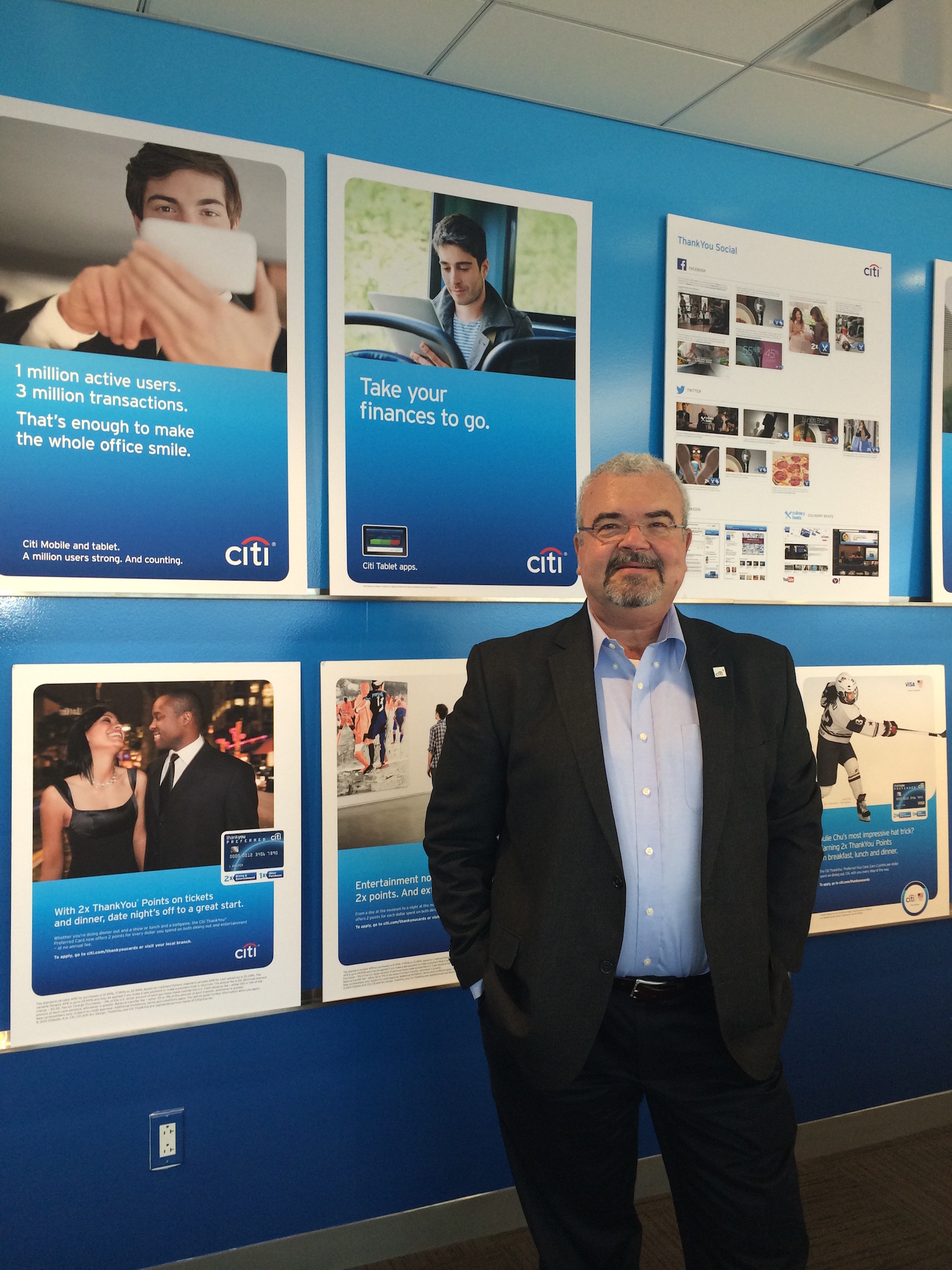Andres Wolberg-Stok is the Global Head, Emerging Platforms and Services at Citi.
What are some of the most transformative things you’re seeing to impact banking? What are some of the most overblown?

The most impactful thing happening today in banking -and in fact it’s happening not just in banking but across pretty much every consumer-facing industry- is the digitization and the user-experience revolution. Now that we all spend so much of our time on our smartphones, those apps we use all the time have reset the bar for what we expect of every interaction. We all demand that everything be as simple and intuitive as the best apps out there from digital companies. It sets a really high standard for everyone else to strive for, and in some cases it requires a reinvention of the entire underlying process. And all of that is a good thing, of course.
You were the first bank to have an app for the Apple Watch. Can you share your thinking about mobile/wearable banking?
At Citi, we are always looking for ways to put our clients in control of their finances and to help them bank however and whenever they want. We’ve been on a journey of innovation for decades, led by that principle, working to bring your accounts ever closer to you. We pioneered the ATM in the 1970s, so you wouldn’t even need to step inside a branch. We were one of the early leaders in online banking, in the early oughts, so you could bank from home or from your office. We were the first major U.S. bank to offer a downloadable mobile banking application, back in 2007, putting the bank in your pocket. Last year, we became the first major U.S. bank to offer no-login access to your accounts (we were issued a U.S. Patent for that this year). And as you point out, this year, we became the world’s first bank with an app for the Apple Watch. You can see the progression, right? Ever closer, ever more available and closer to you. Wearables are here to stay, and your money has a rightful place on them. I just don’t know what we’ll need to do in order to get closer to you next time — what’s next, banking implants?
Your own work experience is truly global. Is that a competitive advantage in your role?
Citi is the world’s leading global bank. We operate in some 160 countries or jurisdictions, with consumer operations in 24 markets at this point. Globality is in our DNA, and it helps us cross-pollinate the best ideas from our colleagues around the world. It also allows transfusions of talent, and of regional perspectives, around the globe, and it helps us serve well those of our clients who are global themselves. To be succefully global, you have to be global and you also have to be local everywhere you are. In fact, together with digitization and urbanization, globalization is one of the three major strategic themes that drive our work.
We read a lot about the competitive pressures on banks. What will a bank look like in the future? What will be its main role and value proposition to customers, the financial ecosystem, etc.?
The bank of the future recognizes that every man, woman and child carries a supercomputer in the shape of a smartphone. It knows people want to pick and choose their experiences, and that they probably do not want to depend for everything on a single supplier of financial services. The bank of the future is the one that understands how to become a whole-life partner for every one of its clients, how to earn a spot at the heart of their individual web or assembly of financial services, and how to be by their side every step of the way for their day-to-day needs as well as for the major moments in life. That bank of the future works with, not against, the fantastic ideas coming out of the Fintech ecosystem – it figures out how to become an integrator of Fintech value for its clients. That’s what, here at Citi, we call “Fintegration”: the integration of Fintech. Banks have the heavy compliance machinery, the track record, the know-how to keep your money safe. Fintech companies can come up with great new experiences, and they need the scale. Fintegration is a win-win all around, starting with the client.




